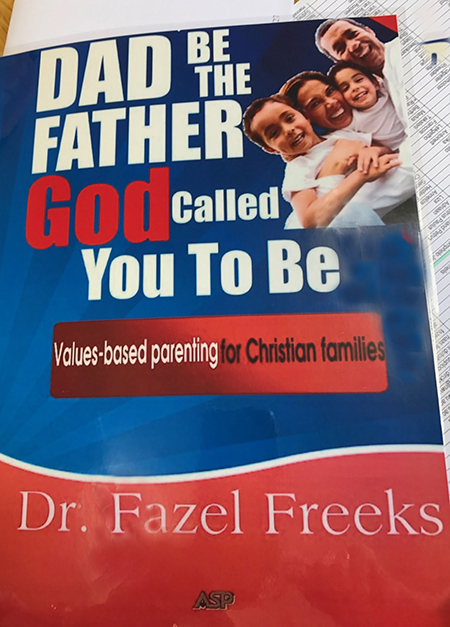A large number of South African children are living their lives without the presence of a father figure. The issue of absent fathers has been a major problem in the country for a number of years.
Dr Fazel Freeks, who is a senior lecturer and the coordinator: community engagement at the Faculty of Theology at the North-West University (NWU), has published a research thesis that explores this crisis. He is an expert in this field, he has published 10 academic articles and four books on the topic.
His research, titled “The role of the father as a mentor in the transmission of values”, focuses on finding out why fathers tend to abandon their children.
“The main reason my research focuses on this topic is because I grew up without a father and did not want to see other people go through what I went through,” he says.
The effects of not having a father figure
The study found that men who are currently absent did not have father figures while they were growing up.
Through his research, Fazel discovered that girl children are usually emotionally attached to their father. Should the father be absent, the child will look for a father figure in the men she dates.
He adds that his research participants indicated that a real father can be identified by the following characteristics: sense of responsibility and accountability, being present in the child’s life, and being supportive and loving.
Teaching convicts to become better fathers
Fazel’s research has a strong community engagement element that it is linked to the Life Beyond Bars community project.
This project entails mentoring a number of inmates at Potchefstroom Correctional Services. The mentors are Fazel, Mrs Suegnet Smit from the NWU’s Faculty of Education, other members of the Faculty of Theology and counsellors from Families South Africa (Famsa), a nonprofit organisation. “The inmates voluntarily sign up for a six-session programme. During these sessions they are mentored and given insight on what it takes to be a good father,” Fazel says.
After completing the programme, the participants receive certificates from Famsa.
As a number of them grew up without a father figure, they do not know what is required of them to be a good parent. The skills and knowledge learned during the six sessions equip them to be better parents once they are released on parole.
While on parole, the former inmates continue to receive support, through mentoring, from Fazel and Pastor Peter Afrika from Real Life Assemblies of God.
“When they leave the correctional services, Peter and I occasionally meet up with them and discuss how they are adapting to the outside world. These meetings also help us assess if they are coping and to evaluate their emotional and spiritual state,” concludes Fazel.

